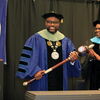
Processing Your Payment
Please do not leave this page until complete. This can take a few moments.
-
News
-
Editions
-
- Lists
-
Viewpoints
-
HBJ Events
-
Event Info
- 2024 Economic Outlook Webinar Presented by: NBT Bank
- Best Places to Work in Connecticut 2024
- Top 25 Women In Business Awards 2024
- Connecticut's Family Business Awards 2024
- What's Your Story? A Small Business Giveaway 2024 Presented By: Torrington Savings Bank
- 40 Under Forty Awards 2024
- C-Suite and Lifetime Achievement Awards 2024
- Connecticut's Health Care Heroes Awards 2024
-
-
Business Calendar
-
Custom Content
- News
-
Editions
View Digital Editions
Biweekly Issues
- April 15, 2024
- April 1, 2024
- March 18, 2024
- March 4, 2024
- February 19, 2024
- February 5, 2024
- January 22, 2024
- January 8, 2024
- Dec. 11, 2023
- + More
Special Editions
- Lists
- Viewpoints
-
HBJ Events
Event Info
- View all Events
- 2024 Economic Outlook Webinar Presented by: NBT Bank
- Best Places to Work in Connecticut 2024
- Top 25 Women In Business Awards 2024
- Connecticut's Family Business Awards 2024
- What's Your Story? A Small Business Giveaway 2024 Presented By: Torrington Savings Bank
- 40 Under Forty Awards 2024
- C-Suite and Lifetime Achievement Awards 2024
- Connecticut's Health Care Heroes Awards 2024
Award Honorees
- Business Calendar
- Custom Content
Talking in class: Studying speech cues’ role in job interviews

Job candidates at employment interviews expect to be evaluated on their experience, conduct and ideas. But a new study by Yale researchers suggests that interviewees are also judged based on their social status — sometimes mere seconds after they begin to speak.
The study, to be published in the Proceedings of the National Academy of Sciences, demonstrates that people can with a high degree of accuracy assess a stranger’s socioeconomic status — class, income, education, occupation status — based on brief speech patterns. According to the study, these snap perceptions influence hiring managers in ways that favor job applicants from higher social classes.
“Our study shows that even during the briefest interactions, a person’s speech patterns shape the way people perceive them, including assessing their competence and fitness for a job,” said Michael Kraus, assistant professor of organizational behavior at the Yale School of Management, who headed the study.
“While most hiring managers would deny that a job candidate’s social class matters, in reality, the socioeconomic position of an applicant or their parents is being assessed within the first seconds they speak — a circumstance that limits economic mobility and perpetuates inequality.”
The researchers based their findings on five studies. Four examined the extent that listeners assess social class based on just a few seconds of speech. Researchers concluded that reciting as few as seven random words was sufficient to allow people to discern the speaker’s social class with above-chance accuracy. (Some of the words: thought, yellow, beautiful, imagine.)

SOM’s Kraus: ‘People tend to rely on class cues without realizing it.’
Researchers also discovered that speech adhering to traditional standards for American English as well as contemporary digital standards — i.e., voices used in tech products like Amazon’s Alexa or Google Assistant — was associated with both actual and perceived higher social status.
Finally, the researchers showed that pronunciation cues in an individual’s speech communicate the speaker’s social status even more accurately than the actual content of the words spoken.
A fifth study examined how these speech cues influence hiring. Hiring managers judged the candidates they perceived to be from higher social classes as more likely to be competent for the job and a better fit for it than the applicants from lower social classes. They also assigned the applicants from higher social classes higher salaries and signing bonuses than “lower-class” candidates.
“We rarely talk explicitly about social class, and yet, people with hiring experience infer competence and fitness based on socioeconomic position estimated from a few seconds of an applicant’s speech,” Kraus said.
“People tend to rely on class cues without realizing it,” he told NHB. “I don’t hire the lawyer whose dad is a lawyer for the reason that they come from the same place in society. Rather I hire the lawyer with a dad who is a lawyer because he has all the right educational experiences and legal experiences, and he has a family track record of excellence in law.
“What people don’t realize,” Kraus added, “is that all that stuff is about class.”

2022 Giving Guide
This special edition informs and connects businesses with nonprofit organizations that are aligned with what they care about. Each nonprofit profile provides a crisp snapshot of the organization’s mission, goals, area of service, giving and volunteer opportunities and board leadership.
Learn more
Subscribe
Hartford Business Journal provides the top coverage of news, trends, data, politics and personalities of the area’s business community. Get the news and information you need from the award-winning writers at HBJ. Don’t miss out - subscribe today.
Subscribe
2024 Book of Lists
Delivering Vital Marketplace Content and Context to Senior Decision Makers Throughout Greater Hartford and the State ... All Year Long!
Read Here-
2022 Giving Guide
This special edition informs and connects businesses with nonprofit organizations that are aligned with what they care about. Each nonprofit profile provides a crisp snapshot of the organization’s mission, goals, area of service, giving and volunteer opportunities and board leadership.
-
Subscribe
Hartford Business Journal provides the top coverage of news, trends, data, politics and personalities of the area’s business community. Get the news and information you need from the award-winning writers at HBJ. Don’t miss out - subscribe today.
-
2024 Book of Lists
Delivering Vital Marketplace Content and Context to Senior Decision Makers Throughout Greater Hartford and the State ... All Year Long!
ABOUT
ADVERTISE
NEW ENGLAND BUSINESS MEDIA SITES
No articles left
Get access now
In order to use this feature, we need some information from you. You can also login or register for a free account.
By clicking submit you are agreeing to our cookie usage and Privacy Policy
Already have an account? Login
Already have an account? Login
Want to create an account? Register
Get access now
In order to use this feature, we need some information from you. You can also login or register for a free account.
By clicking submit you are agreeing to our cookie usage and Privacy Policy
Already have an account? Login
Already have an account? Login
Want to create an account? Register






0 Comments